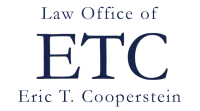 A recent decision of the Eighth Circuit and a pending prosecution by the Minnesota Board on Judicial Standards (BJS) encourage judges to speak more in some instances and less in others.
A recent decision of the Eighth Circuit and a pending prosecution by the Minnesota Board on Judicial Standards (BJS) encourage judges to speak more in some instances and less in others.
The Eighth Circuit case, Wersal v. Sexton (courtesy of Minnesota Lawyer’s blog), struck down several restrictions on candidates for judicial office, as set forth in Canon 4 of the Code of Judicial Conduct. The court rejected clauses that prevented judicial candidates from endorsing or opposing other candidates for public office and directly soliciting campaign contributions from non-lawyers, whether for the judicial candidate’s own campaign or some other candidate’s campaign.The clear theme of the opinion is that few, if any, restrictions on the political speech of judicial candidates will ever pass constitutional muster.
So Minnesota judicial candidates are now free to speak more. In combination with previous United States Supreme Court and Eighth Circuit decisions, Minnesota judicial candidates are free to announce their positions on issues, align themselves with political parties and candidates running for local or national offices, and solicit campaign contributions. Could make things interesting in Minnesota’s 10th judicial district, where 24 candidates are vying for one seat.
On the other hand, the Board of Judicial Standards has filed a formal complaint with the Minnesota Supreme Court seeking to publicly discipline Hennepin County Judge Stephen Aldrich for, well, speaking too much. Or perhaps it is better characterized as being too glib in his courtroom. Judge Aldrich referred generally to some witnesses (not when they or a jury was present) as ”a bunch of drunkards,” made some other comments about intoxicated people, chided counsel on a couple of occasions, and made an insensitive joke about how he and his wife, during 45 years of marriage, had never considered divorce but maybe considered murder.
Judge Aldrich’s response is available as well, although the version the BJS posted on its website (and linked to here), does not include the exhibits Judge Aldrich attached. The exhibits, which were filed with the Minnesota Supreme Court, consist of an order by Hennepin Chief Judge Swenson refusing to remove Judge Aldrich from one of the matters identified in the complaint, a letter from a witness to one another matters, and a half-dozen or so letters of support from other judges and lawyers.
Juxtaposed against each other, the two cases make for some interesting contrasts. Judge Aldrich is being chastised for engaging in speech that violates rules preventing judges from creating the appearance of impropriety or impugning the judiciary. In the Sexton case, the Court rejected arguments that restrictions on judicial candidates’ speech was necessary to avoid even the appearance of impartiality (as described in Judge Bye’s dissent).It’s okay for a judicial candidate to speak out during a campaign in favor of tougher DWI prevention but not for a judge to refer to allegedly intoxicated people as “drunkards.”
So, judges — feel free to talk more but watch what you say.
